In 1622, a group of Portuguese colonial officials planned to humiliate a female African diplomat. Her name was Queen Nzinga.
She showed up for a meeting with the Europeans only to realize there was no seat for her. All the officials were provided with seats. But to strip her of dignity, they made sure she had none.
To their shock, she turned the situation around. In an unexpected move, Queen Nzinga motioned for one of her servants to kneel so she could sit on his back.
She didn’t do this for herself. She did it for her kingdom, for African resistance to colonization. Also, for every oppressed woman across the globe, Queen Nzinga refused to bow to the power of the colonial masters.
This episode marked a private but consequential protest against the oppression of the Black race and the maltreatment of women. It also reflected the greatness of her iconic and memorable reign.
Queen Nzinga defied societal and patriarchal odds to become one of the most influential female African rulers in history.
It was an early sign of her resistance to oppression and unbreakable resolve to free her people from the chains of colonialism. In a world where women were denied seats at the decision tables, Queen Nzinga stood out. She turned a humiliating situation into a show of power and authority.
Queen Nzinga defied societal and patriarchal odds to become one of the most influential female African rulers in history. But how did she do it?
This article examines how the bravery and political genius of one woman took the fight against colonization many steps forward.
The Setting: A Land in the Crosshairs
When the Portuguese first set foot on African soil, it was on the coasts of present-day Angola. It was 1575, and the visitors were looking to expand their influence and secure opportunities.
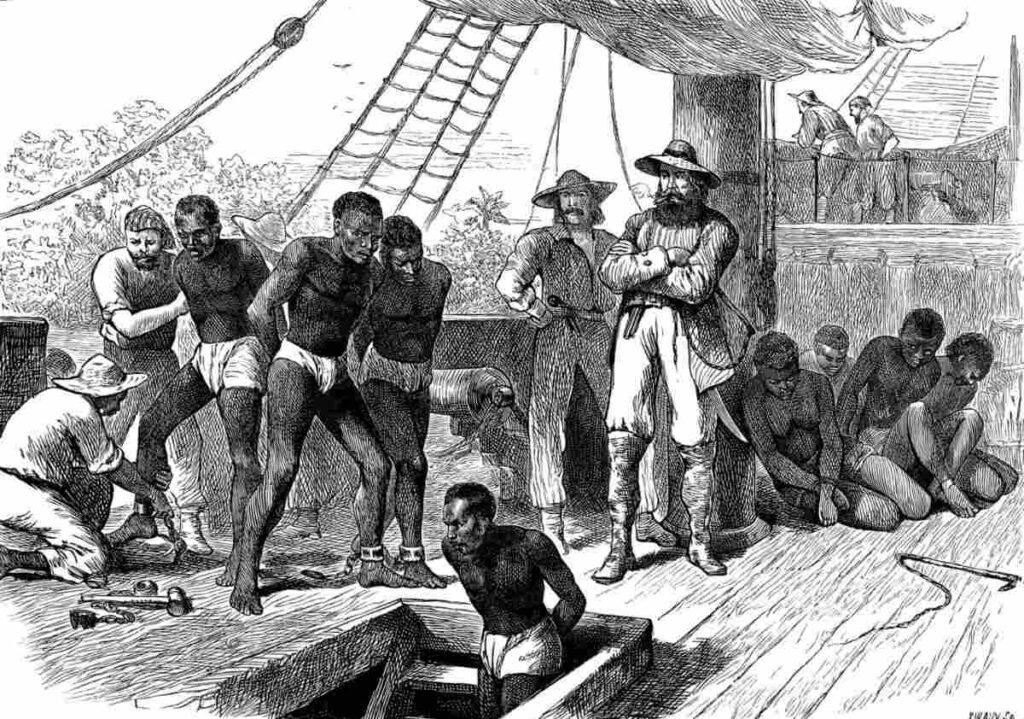
They built forts and then began venturing deeper into the area. They had two primary objectives. First, they wanted to control trade. Secondly, to acquire slaves to help develop their new colony in Brazil.
The European explorers soon stumbled upon African civilization. The Ndongo people in present-day Angola were farmers. They were skilled in crop farming and livestock production.
They multiplied cattle and, with their neighbors, traded in precious items and minerals such as copper and ivory. The Ndongo people had a leader, a king called the Ngola. It was from this royal title that Angola later derived its name.
She had learned everything an heir to the throne should know about running the kingdom.
As powerful as the Ngola was, his military might couldn’t withstand the superior firepower of the invaders. The kingdom’s array of swords and spears was no match for the Portuguese guns.
Less defiant African groups also joined forces with the Europeans to conquer the Ndongo people. It was during the early years, when her people surrendered to the Portuguese, that Queen Nzinga emerged.
A Princess with a Sharp Mind
Queen Nzinga was born around 1583 to the Ndongo royal family, led by King Kiluanji. From her early years, she showed signs of unusual intelligence and charisma.
Stories surrounding her birth have it that she was born with her umbilical cord wrapped around her neck. As widely believed, this was a sign that she would strangle her enemies in the future.
Subsequently, events began to align with her destiny. First, her parents allowed her to learn statecraft, which was highly unlikely for a Princess at the time.
She attended council meetings and observed dispute resolution sessions. Queen Nzinga also learned the ropes of diplomacy.
Secondly, she ventured into warfare. She grew in skill and responsibility till she began to lead troops in hunts and battles.
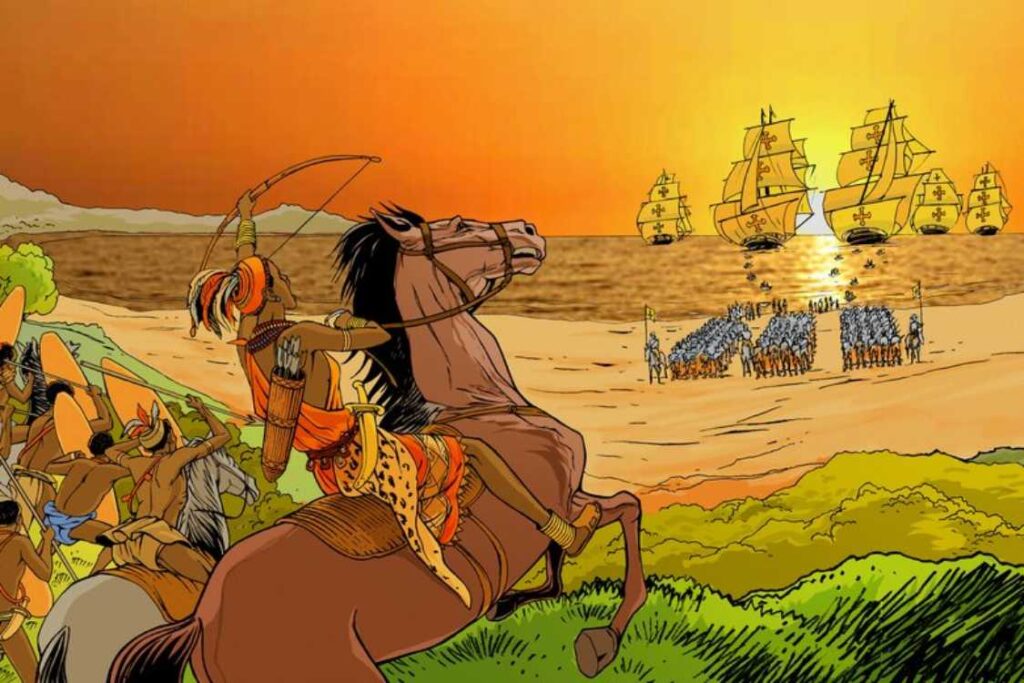
By the time her brother, Ngola Mbande, ascended the throne, he had found a valuable asset in his sister. She had learned everything an heir to the throne should know about running the kingdom.
The Famous Meeting: A Seat Denied, A Seat Created
After her brother took over the throne in the early 1600s, Queen Nzinga became the kingdom’s leading diplomat.
In 1622, he sent her to the Portuguese colonial capital of Luanda to negotiate a peace treaty. Queen Nzinga undertook the mission with a full awareness of the importance of her role and the greatness of the kingdom she represented.
She arrived in Luanda in her royal best, wearing extravagant clothing, accompanied by a robust retinue of servants, and bearing many gifts. But as soon as she entered the hall of Governor João Correia de Sousa, she realized that her hosts didn’t accord her or her kingdom the respect they deserved.
She met a deliberate insult. While chairs were set for the other participants of the meeting, there was none for her. Only the Portuguese officials had seats!
It was an unexpected turn of events. She needed to think fast. The pride and dignity of her people and the black race were at stake.
Standing while others sat would be perceived as a sign of submission. It was a costly prize to pay, even for peace. But thanks to her extensive brilliance and training, she immediately thought up a way out of the humiliation.
To the surprise of her hosts, she calmly ordered one of her male servants to drop to his hands and knees. Then she sat on his back and joined in the negotiation.
A crafty plan to humiliate her soon turned into a show of power. This event has to date remained an iconic one in Africa’s history of colonial resistance.
During the 1622 peace negotiations, Queen Nzinga made one shocking concession. She agreed to convert to Christianity.
Queen Nzinga successfully negotiated a peace treaty during the meeting. This meant a stop in the violent confrontation between colonial forces and her people.
It also meant a reaffirmation of Ndonga’s sovereignty and a release of Ndonga captives from Portuguese hands.
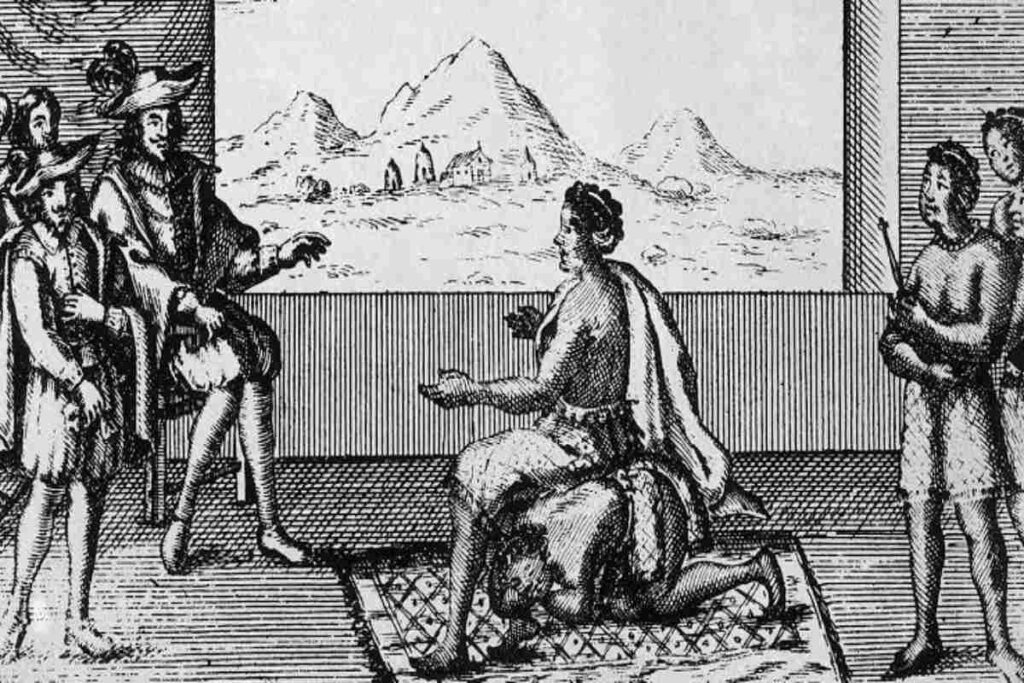
However, the Portuguese later went back on the terms of the treaty. Despite that, Queen Nzinga had already made a huge statement, one that sealed her place at the top of the list of African queens.
She fought for Africa’s pride. She showed that the spirit of the continent cannot be subdued or defeated.
Diplomacy and Deception
Queen Nzinga wasn’t just exceptional in character? She was brilliant in diplomacy.
Although highly principled, she occasionally resorted to deception as a diplomatic tool. To strike deals with the Portuguese, she had to establish better relations with them. One of the best ways to do that was through their religion.
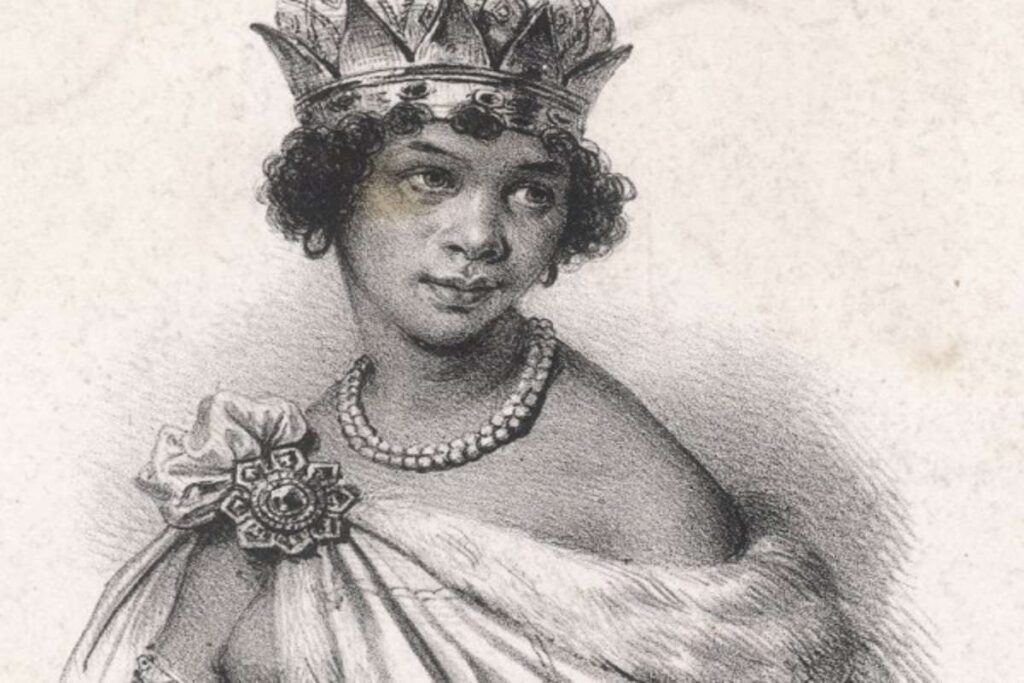
During the 1622 peace negotiations, Queen Nzinga made one shocking concession. She agreed to convert to Christianity. She followed through with this and was baptized. In honor of the governor’s wife, she adopted her baptismal name Ana de Sousa.
Her baptism helped secure the trust of the Portuguese. They saw her conversion as a sign of civility, but to Queen Nzinga, it was just a bargaining tool.
She only planned to sustain her new faith as long as the partnership lasted. If the agreement failed at any point, she would reject the Christian faith.
She did exactly that when the Portuguese betrayed their promise and resumed their slave raids in her Kingdom. Thereafter, she sealed a partnership with the Dutch, who were at the time, arch-rivals to the Portuguese.
She also collaborated with escaped slaves and local militants who were rebelling against Portuguese colonialism. Unfortunately, her smooth diplomatic career experienced a major hitch.
A Queen in Exile
At the peak of her influence as an Ndongo envoy, Queen Nzinga began to face opposition from the most unlikely places—her home.
Her brother, Mbande, became threatened by her growing popularity. He thought that it was only a matter of time before she overthrew him.
He began to fight Queen Nzinga to the point that he even had her child killed. The opposition ended with his death in 1624.
Leading her troops, she set ambushes, organized raids, and planned many surprise attacks against Portuguese bases.
After his death, Queen Nzinga seized power. But her ascent to the throne won her more enemies among the nobles.
The Europeans quickly began to collaborate with them to unseat her. Under this immense pressure, Queen Nzinga was forced to flee to a nearby kingdom called Matamba.
She conquered the territory and established a new government. This included strengthening the army and forming new alliances against the Portuguese.
Queen Nzinga fought the rampant Portuguese slave trade through sustained military attacks. Leading her troops, she set ambushes, organized raids, and planned many surprise attacks against Portuguese bases.
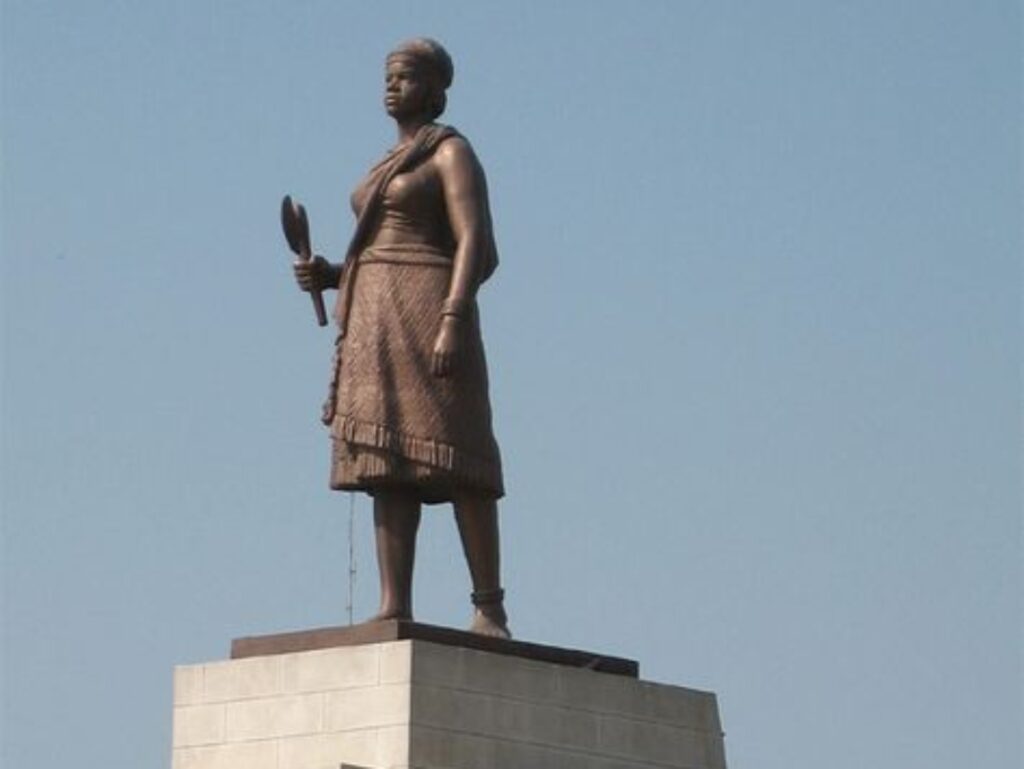
Although her military campaigns weren’t enough to dislodge the colonizers, they weakened them and kept them away from her people.
The Long Fight
For 40 years, Queen Nzinga guided the people of Ndongo and Matamba through the paths of safety. She preserved them from the harshest impacts of colonial oppression.
Queen Nzinga fought many battles, signed and broke agreements when necessary, and sealed alliances with anyone helpful to her cause. She was a top diplomat and a skilled warrior.
By combining Christianity with power, she kept the Portuguese at bay for many decades.
The mention of her name struck fear into her people’s enemies and admiration in her homeland. But by the 1650s, age began to tell on her. Even in her sixties, she went to war. But, very close to her seventies, she knew it was time to pursue a life of calm.
In 1657, she reached an agreement that solidified her authority over Matamba. This peace deal allowed her the safety she needed to concentrate on internal affairs, including picking the next leader for her people.
Legacy: A Symbol of Resistance
Queen Nzinga died in 1663 at age 80 or 81. To date, Africa hasn’t forgotten its valuable contributions to the continent’s advancement. The Nzinga legacy lives on.
Queen Nzinga was a fearless warrior, a wise leader, a skilled diplomat, and a cunning negotiator. By combining Christianity with power, she kept the Portuguese at bay for many decades.
She gave future generations of Angolans the motivation to wage war against colonialism and win. To date, her memory lives on through stories and songs composed in her honor.
There are statues of her across the nation. Monuments and streets also bear her name.
Queen Nzinga is an inspiration to politicians, writers, and freedom fighters across the continent. Who can forget the woman who looked humiliation in the eyes and won?
She remains the woman who was denied a seat at the table of men. But instead of accepting the condition, she created one of her own.
This is the true African spirit.
Which part of Queen Nzinga’s story resonated with you the most? Share your thoughts.

